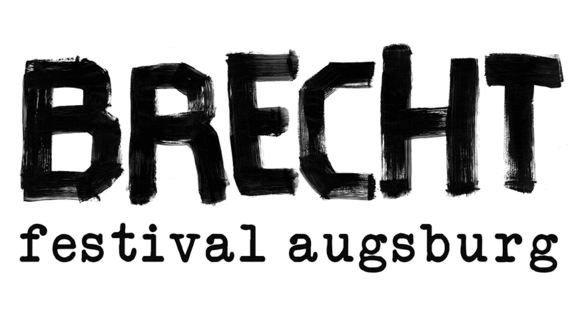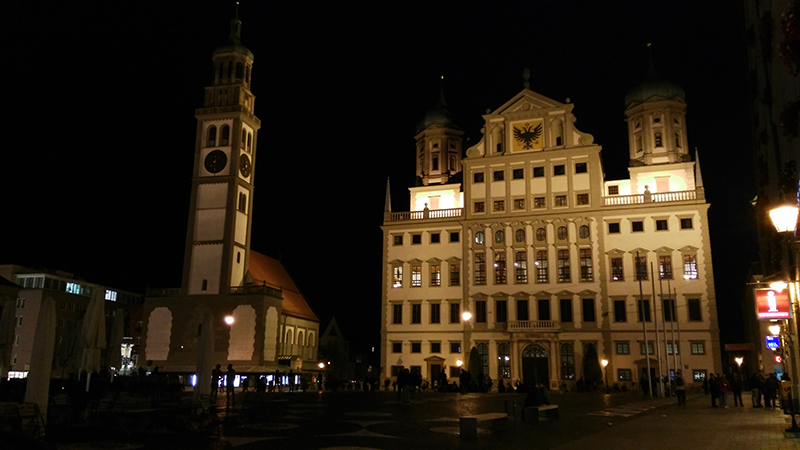 A large room that fits forty or more people, about 8-10 people squeeze into the tightly arranged rows. Friends sit together; the group is spread around the room, though, leaving a couple of rows empty as no one wants to sit in the first row. An exhausted lecturer scurries in quickly. It’s mid-summer and hot. He had to walk quite the distance from his office to the oversized lecture hall where the small group will spend the next one and a half hours – or maybe even three.
A large room that fits forty or more people, about 8-10 people squeeze into the tightly arranged rows. Friends sit together; the group is spread around the room, though, leaving a couple of rows empty as no one wants to sit in the first row. An exhausted lecturer scurries in quickly. It’s mid-summer and hot. He had to walk quite the distance from his office to the oversized lecture hall where the small group will spend the next one and a half hours – or maybe even three.
Well, this is how a future Language Centre class might look. If you think about it, it does seem kind of surreal. But what’s the issue? There’s a room. There’s a lecturer. There are students. Everything’s fine then, right? Let’s have a look at what happened during the last few months or years first…
 What happened?
What happened?
There’s a city that wants to become a metropolis. There’s a hospital that wants to become a Uni-Klinik (teaching hospital). There’s a university that wants to have a medical faculty. All these desires aren’t so bad in themselves, even though you might well be wondering if all this really is necessary to improve the region. But I’ll leave that debate to others who know about this kind of stuff.
However, what I do know and what I do see is how all this affects life on campus and our studies. Our university is known for having just one campus for all the faculties. Students definitely like it that way – there are even quite a number of students who have chosen Augsburg over other places, this being one of the most important reasons. Rumour has it that officials want to have the medical faculty on campus as well – at least some of the offices.
Issues
There are just a couple of teeny-tiny issues with all this. So, here are some random thoughts that occurred to me when thinking about the status quo, history of events, plans, and possible prospects:
- Medical students will study near the hospital; they’ll get their own campus (Medicine freshmen in Augsburg in 2019).
- The Registrar’s office will be on campus, which means that medical students will have to travel across the whole city just for every single tiny little thing that can’t be organized online.
- Strictly speaking, there’s not enough room for another faculty on the campus, even if it’s only the offices for organizational stuff.
- To make room, the Language Centre has to move – after all, it’s neither a faculty nor a chair, so who’s gonna need it anyway, right?
- Last year there was an uproar caused by the idea that the Language Centre should move. There was a long discussion about where it was going to move. The decision at one point was that ‘they’d’ make do without the move. However, during the summer break this decision was changed again and the first rooms of the Language Centre were emptied
- Language Centre lecturers will have to travel from the BCM building near the Messe to lecture halls and rooms on campus.
- Students will have to travel from the campus to the BCM building in order to meet lecturers for their office hours. Or will there be conference rooms to use for this kind of stuff? Well, I don’t think so.
- Even more lecturers will probably use a lot of their work time just to travel back and forth. Or are they supposed to count this as their ‘breaks’ and won’t even get paid for it? Either way, if I were a lecturer, I wouldn’t be happy about it.
Well, these are a lot of thoughts and they’re not even all there is to think of. Obviously, the Language Centre move doesn’t affect many students, does it? If you think of it, most University of Augsburg’s students will indeed be affected by it. Even if you don’t study English or any of the Romance languages, you’re bound to attend at least one of the language classes for most degrees. What would a Global Business Manager do without at least having studied Business English? English in particular is needed in many degrees, but all the other languages as well can be studied as part of their electives.
 What’s the outcome?
What’s the outcome?
To sum up, almost every student will be affected by these changes. The incoming medical students will be affected by these organisational decisions as well. Many lecturers will be affected. What about the teaching itself? Will all these hassles affect the quality of teaching in the long run? The lecturers that I know are very engaged and try very hard to give us the best possible lessons. But maybe we will all have to pay the toll sooner or later anyway. We will have to wait and see.
Text & Pictures: Angie Czygann


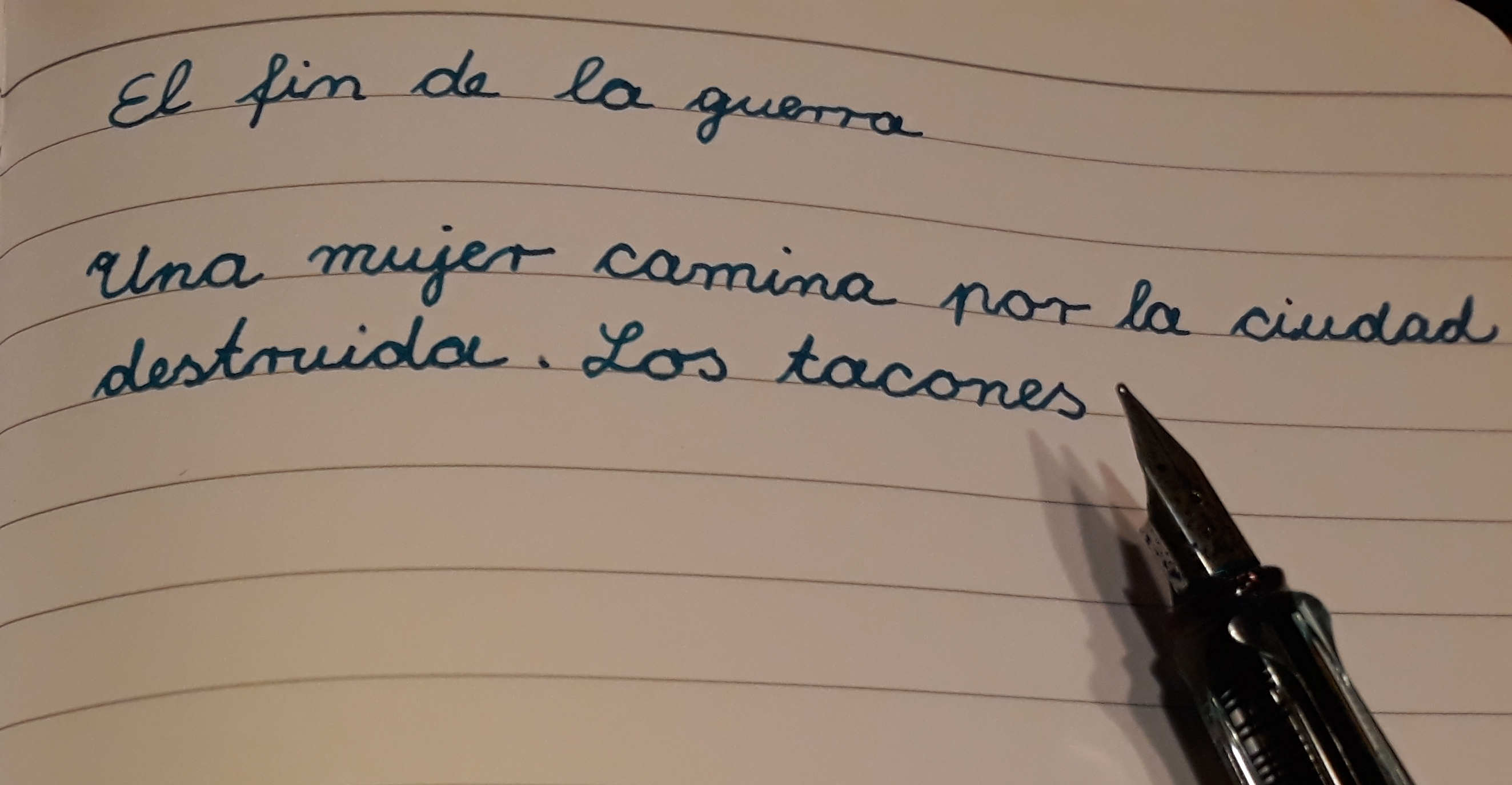
 Una mujer camina por la ciudad destruida. Los tacones de sus zapatos resuenan en la acera polvorienta. La mujer pasa por ruinas, ladrillos abandonados y pilas de ceniza. Todo es gris o negro. Pero no la mujer. Su vestido delicado emite un aura festiva, los cabellos rubios están bien arreglados y sus ojos resplandecen de alegría. Ella sabe que la guerra ha terminado.
Una mujer camina por la ciudad destruida. Los tacones de sus zapatos resuenan en la acera polvorienta. La mujer pasa por ruinas, ladrillos abandonados y pilas de ceniza. Todo es gris o negro. Pero no la mujer. Su vestido delicado emite un aura festiva, los cabellos rubios están bien arreglados y sus ojos resplandecen de alegría. Ella sabe que la guerra ha terminado.
 Have you ever noticed someone who moves abruptly, as if they couldn’t control their own body? I bet you have! But usually you’d either look away or you’d try to give the person a furtive look because you’re wondering what they’re doing. Well, I’m one of those people fidgeting around in public owing to a disease called Tourette’s syndrome. As most of you’d probably try to avoid interrogating me in order not to make me feel uncomfortable, I’m going to answer the Top 10 questions I’ve been asked because I want to give you an insight into my life with Tourette’s.
Have you ever noticed someone who moves abruptly, as if they couldn’t control their own body? I bet you have! But usually you’d either look away or you’d try to give the person a furtive look because you’re wondering what they’re doing. Well, I’m one of those people fidgeting around in public owing to a disease called Tourette’s syndrome. As most of you’d probably try to avoid interrogating me in order not to make me feel uncomfortable, I’m going to answer the Top 10 questions I’ve been asked because I want to give you an insight into my life with Tourette’s.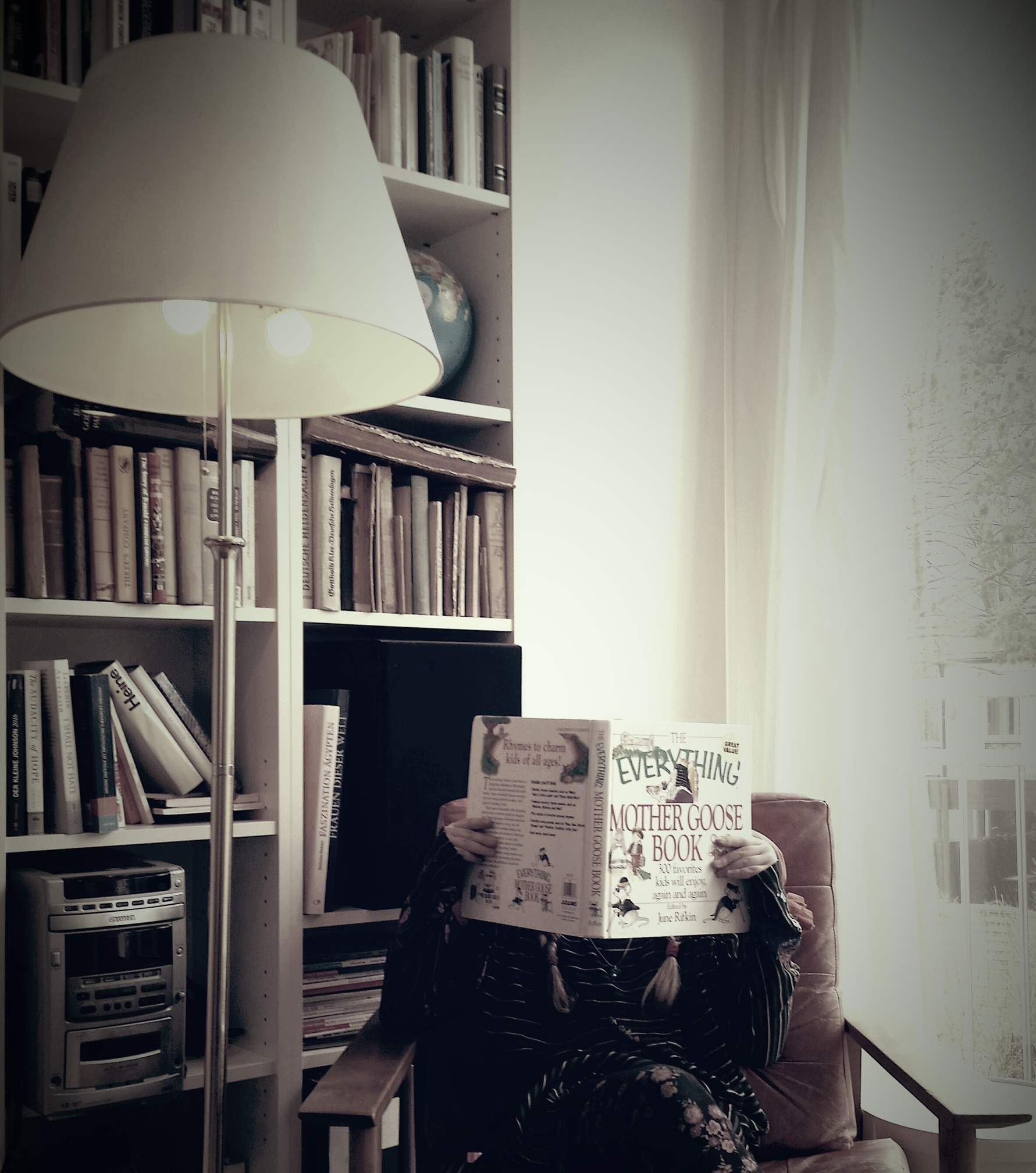
 Collections
Collections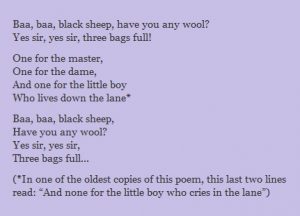 Baa, Baa Black Sheep
Baa, Baa Black Sheep

